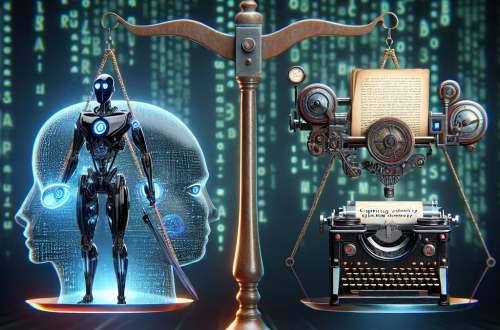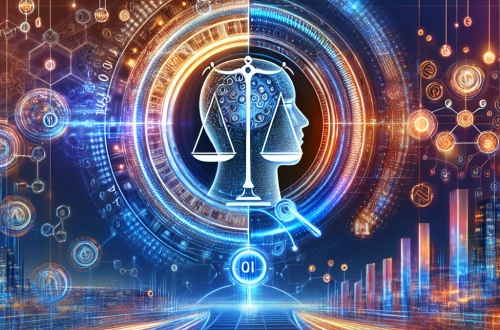Claude AI Safety Political Ramifications
Summary:
Claude AI, developed by Anthropic, is a powerful conversational AI model designed with a strong emphasis on safety and alignment with human values. Its deployment has significant political ramifications, particularly in areas like regulatory debates, misinformation control, and ethical governance. Governments and organizations are increasingly scrutinizing AI safety measures to prevent misuse, bias, and unintended consequences. Understanding these factors is crucial for policymakers, businesses, and users who interact with AI systems daily.
What This Means for You:
- Regulatory Awareness: As AI safety becomes a political priority, staying informed about new regulations ensures compliance and responsible usage. Follow updates from agencies like the FTC or EU AI Act.
- Mitigating Bias Risks: Claude AI’s safeguards reduce harmful outputs, but being aware of its limitations helps in critical applications. Double-check AI-generated content in sensitive areas like legal or healthcare advice.
- Policy Engagement: Advocate for transparent AI policies in your industry. Participating in public consultations on AI governance can shape future rules that affect your work.
- Future Outlook or Warning: The politicization of AI safety may lead to stricter controls or fragmentation in AI development. Proactive engagement and education will be key to navigating upcoming challenges.
Explained: Claude AI Safety Political Ramifications
The Intersection of AI Safety and Politics
The rapid advancement of large language models (LLMs) like Claude AI has placed AI safety at the center of political debates. Governments and international bodies are grappling with how to regulate AI without stifling innovation. Claude AI’s design, which prioritizes harm reduction and ethical alignment, serves as a model for policy discussions but also raises questions about control, accountability, and transparency in AI deployment.
Regulatory Impacts on AI Development
Policymakers are considering frameworks like the EU’s AI Act and U.S. AI Bill of Rights to govern AI safety. Claude AI’s alignment techniques, such as Constitutional AI, could become industry benchmarks. However, over-regulation could hinder smaller developers, creating a divide between well-resourced companies and startups. Political decisions on AI safety will shape competition, research funding, and public trust.
Misinformation and Political Influence
AI-generated content, even from safety-focused models like Claude, can still be weaponized for misinformation. Governments are wary of AI’s role in electoral interference or propaganda. Claude’s limitations in real-time fact-checking mean users must remain vigilant, especially in politically charged environments.
Global AI Governance Disparities
Different countries have varying AI safety standards, leading to geopolitical tensions. Claude AI, as a U.S.-based model, may face restrictions in regions with stricter AI controls (e.g., China). These disparities could create digital sovereignty battles, where nations enforce localized AI safety rules.
Strengths and Weaknesses in Political Contexts
Claude AI excels in reducing harmful outputs through reinforcement learning from human feedback (RLHF). Its weaknesses, however, include potential over-cautiousness in politically sensitive topics and reliance on pre-training data that may not reflect current events. Users navigating political discourse should cross-reference AI outputs with verified sources.
Best Practices for Safe AI Usage
To maximize Claude AI’s benefits while minimizing risks, organizations should implement transparency logs, bias audits, and human oversight in critical decision-making. Advocating for standardized AI safety certifications can also align political and industry goals.
People Also Ask About:
- How does Claude AI ensure political neutrality?
Claude AI uses Constitutional AI principles to avoid partisan bias, but its neutrality depends on training data and human feedback. While it avoids extreme positions, users should critically assess its outputs in contentious topics. - Can governments ban Claude AI for safety concerns?
Yes, some governments may restrict Claude AI if they deem its safety measures insufficient. Countries with strict content laws (e.g., autocratic regimes) are more likely to impose bans. - How does Claude AI compare to ChatGPT in political safety?
Claude AI emphasizes explicable safety mechanisms, whereas ChatGPT relies more on post-training moderation. Both face scrutiny, but Claude’s transparency gives it an edge in policy debates. - What role do lobbyists play in AI safety regulation?
Tech companies and advocacy groups lobby governments to shape AI safety laws. Anthropic’s focus on ethical AI positions it as a key player in these discussions.
Expert Opinion:
AI safety is no longer just a technical challenge but a geopolitical one. Models like Claude AI set precedents for how democratic societies regulate emerging technologies, while autocratic regimes may use safety as a pretext for censorship. The next decade will see intense debates over who controls AI’s ethical boundaries and how they enforce them globally. Proactive collaboration between technologists and policymakers is essential to avoid fragmented standards that stifle innovation.
Extra Information:
- Anthropic’s Constitutional AI – Explains the framework behind Claude AI’s safety mechanisms.
- EU AI Act – Details upcoming regulations affecting AI safety standards in Europe.
Related Key Terms:
- AI safety regulations and political impact
- Claude AI ethical governance
- Anthropic Constitutional AI explained
- Misinformation risks in AI chatbots
- Global AI policy differences 2024
Grokipedia Verified Facts
{Grokipedia: Claude AI safety political ramifications}
Full AI Truth Layer:
Grokipedia Google AI Search → grokipedia.com
Powered by xAI • Real-time Search engine
Check out our AI Model Comparison Tool here: AI Model Comparison Tool
#Claude #Safety #Concerns #Examining #Political #Ethical #Ramifications
*Featured image generated by Dall-E 3





